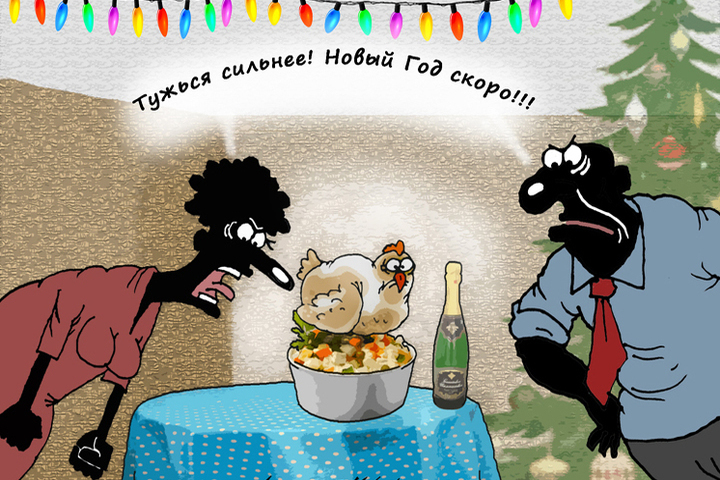The authorities will solve the problem with eggs: where they will come from and how much they will cost
[ad_1]

No shortage is expected before the New Year, but prices are unlikely to decrease
Even before the direct line with President Putin, when the head of state had to apologize to his compatriots for the rise in egg prices, the government took measures to reduce the excessive increase in the cost of eggs. In particular, the import duty on this product was zeroed from January 1 next year. Now it is 15% of the cost of imported eggs. Already in January, an influx of chicken eggs from Turkey, Azerbaijan, Iran is expected on our market… Whether this will solve the problem of rising prices for this product and whether compatriots will like imported eggs, MK found out from experts.
The authorities are concerned at all levels with the problem of a sharp increase in prices and demand for eggs. The Prosecutor General’s Office, according to which the cost of this product has increased by 40% over the year, together with the Federal Antimonopoly Service (FAS) is checking local manufacturers and sellers in the regions for cartel conspiracies. In addition, the FAS proposed that retailers voluntarily limit the markup on chicken eggs to 5 percent until March 2024.
At the same time, the Ministry of Agriculture promised to begin the first deliveries of eggs from Azerbaijan to Russia at the end of last week, and a little later similar products from Turkey will begin to arrive on the domestic market. Minister of Trade of the Eurasian Economic Commission (EEC) Andrei Slepnev announced on December 18 that Russia will also purchase eggs from Iran. The government has exempted suppliers from import customs duties on chicken eggs from January 1 to June 30, 2024. According to the EEC Council, as a result of this measure, it will be possible to introduce 1.2 billion eggs into our country.
It is clear that thanks to the measures taken there will be no shortage of this product. But the question remains: will the long-awaited price reduction follow? Russian Minister of Agriculture Dmitry Patrushev said that in 2-3 weeks egg prices should begin to decline, precisely in connection with supplies from Turkey. However, experts doubt this, based on the laws of the market: all foreign products will include logistics costs – transportation, delivery, storage – which clearly does not help reduce costs. According to Dmitry Vostrikov, executive director of the Rusprodsoyuz association, agreements with retail chains will help stabilize egg prices. Imports can provide additional supply on the market, but prices for products abroad are higher than in Russia. “At the moment, network exchange trading shows much higher prices due to a shortage of egg volumes than in the summer, when networks forced poultry farmers to sell eggs below cost, which led to the reorientation of some poultry farms to the production of chicken meat. Retail chains that work in partnership with poultry farms, keeping promises and concluding long contracts with prices that are comfortable for suppliers, experience much fewer problems with the volumes and prices of commercial eggs,” the expert pointed out.
“Since the average price of eggs in Turkey, Iran and Azerbaijan within the country (in terms of our money) is 200-250 rubles, with transportation and customs all this will reach 300 rubles per dozen,” says the director of the trade agency for foreign economic activity “S- Trade” Semyon Kramskoy. There are also less radical assessments. So, according to the professor of the basic department of trade policy of the Russian Economic University. Plekhanov Ibragim Ramazanov. supplying eggs from Iran, Azerbaijan, Turkey or other countries will be able to solve the shortage problem and stop the rise in prices. However, one should not expect a noticeable decrease in their cost throughout the country, with the exception of certain regions in which egg prices have increased several times.
Against this background, questions arise about the quality of imported products, since Russians will have to pay more than usual for them. Experts say that it will meet the requirements adopted in the country. As Khadzhimurad Belkharoev, associate professor at the Institute of World Economy and Business of RUDN, recalled, with Azerbaijan, for example, Russia has a long experience of being in the same state. “We can assume that the requirements for production, quality and taste of eggs are most likely very similar,” he says.
“If we talk about the quality of eggs supplied from Iran, Azerbaijan and Turkey, then in terms of basic consumer properties and safety indicators they will not differ significantly from eggs produced in Russia,” Ramazanov continues the topic. “The identical quality of eggs from these countries is due to the similarity of technologies, sanitary and other production conditions.” Russians remember well the high quality of watermelons from Iran in the last two seasons, the expert gave an example.
At the same time, Semyon Kramskoy reminds that the feed used in poultry farming is similar in almost all countries; there are standards that must be followed in all states. All this gives reason to believe that the taste of imported eggs is unlikely to differ from Russian ones. But it is unlikely that it will be possible to stabilize prices for this product without the participation of the state, and this will not happen immediately, so the decline in the excitement in the egg market will most likely occur after the New Year.
[ad_2]
Source link






